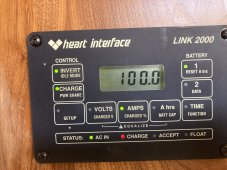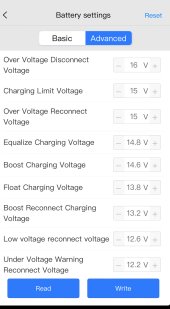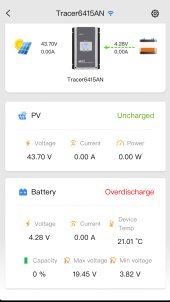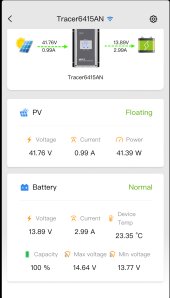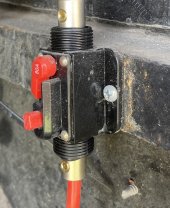Jazzmonger
Hacker at heart
I suspect I have a low voltage condition. Does anyone know the MINIMUM PV voltages required? I'm loathe to get up on my RV roof and rewire my panels, especially since the wind is blowing at 30-40 mph right now.
The controller cycles from charging to off after about 20 seconds, resets after about a minute and does this continuously. I can see the PV voltage drop to 38v or so when it charges, hence my question about what is the min PV voltage for these units. All 8 of my panels are in parallel (8P), so I'm probably going to have to go 2S4P if this is the problem.
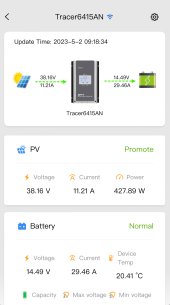
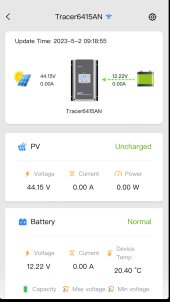
The controller cycles from charging to off after about 20 seconds, resets after about a minute and does this continuously. I can see the PV voltage drop to 38v or so when it charges, hence my question about what is the min PV voltage for these units. All 8 of my panels are in parallel (8P), so I'm probably going to have to go 2S4P if this is the problem.





